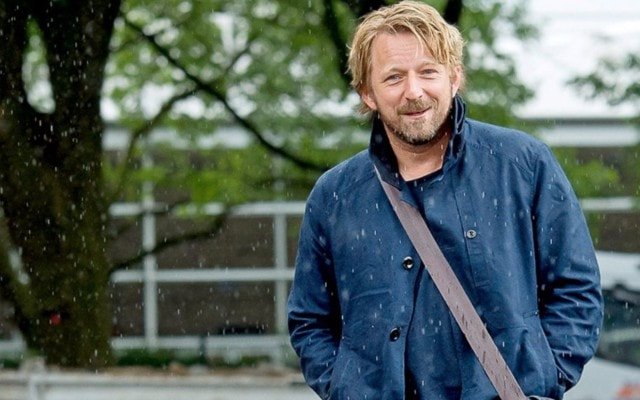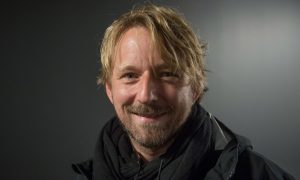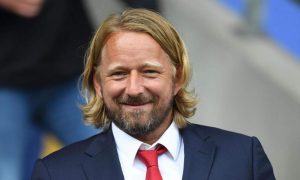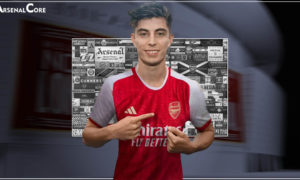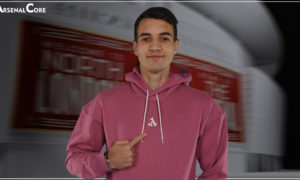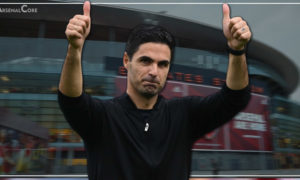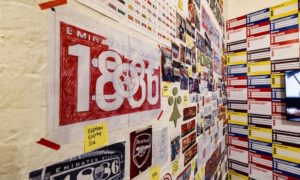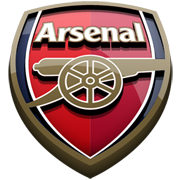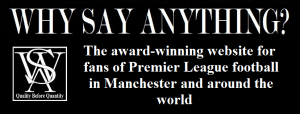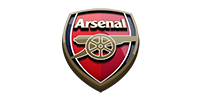Arsenal’s head of recruitment, Sven Mislintat, has claimed that he is looking for a player with “Iniesta brains” while scouting for the Gunners.
Mislintat has been the centre of recruitment since he took over the reigns at North London. He has brought in exclusive young talents in Matteo Guendouzi, Konstantinos Mavropanos and also raided his former club with marquees in Pierre-Emerick Aubameyang followed by Sokratis Papastathopoulos.
Arsenal signed highly rated Lucas Torreira, Bernd Leno, Stephan Lichtensteiner, Sokratis and Guendouzi in the summer. All of whom have made some significant contributions in one way or another this season.
Arsenal and Sven will be planning for January transfer window, though he has probably given us a hint to ‘What he’s looking for’ at Arsenal.
Sven Mislintat also talked about his rift with Tuchel at Dortmund which eventually led his exit.
Here is the transcript of his Exclusive interview with Zeit Online:
Die Zeit (DZ): Is it true, that you even look at the players on the warm up before the game?
Sven Mislintat (SM): I like to see the warm up in the stadium. For example, there are strikers which don’t have as many actions in the game, but while warming up you can see their quality. But there’s also players which shine in training but can’t produce on the pitch. And others only get to their maximum while playing, because of mentality. Match is match, and warm up is warm up.
DZ: What’s most important to you (while scouting)?
SM: Small details, which aren’t shown in data. Like Julian Weigl, who I scouted for Dortmund while playing for 1860, who could scan the whole pitch with a little shoulder check. I look for the special, for a weapon /*hard to translate*/ As an example there was the pace paired with clinical precision on the finishing on Aubameyang (which made him special). Or someone with a (football-)brain like Iniesta.
DZ: The brain of Andres Iniesta?
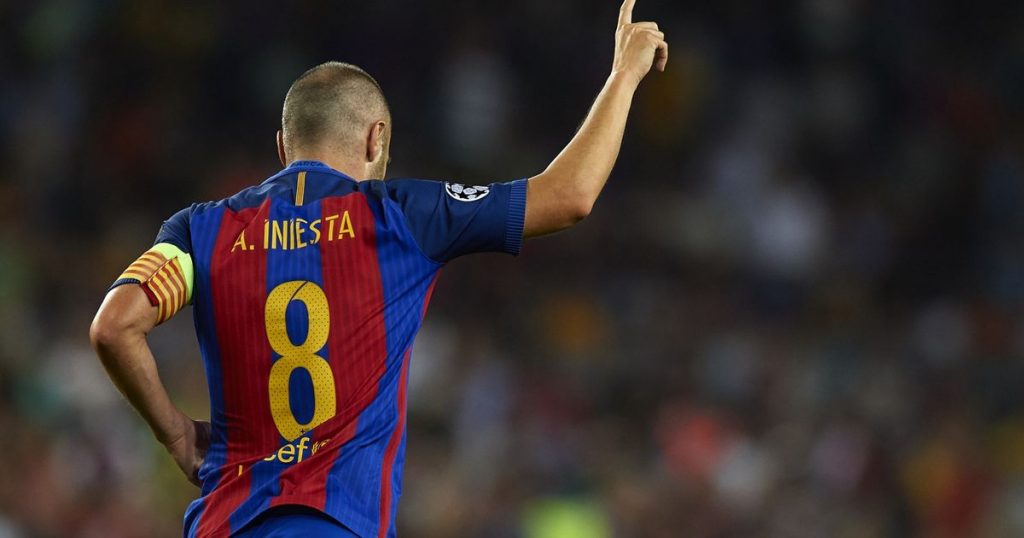
SM: Right. I’m talking about the ability to receive the ball, but keep the opponent in sight all the time, without looking at the ball, and playing the game naturally without thinking about it. It’s automatic (with him). Every motion is captured (in his brain). In these situations players don’t have to think. When I saw Ousmane Dembele in an u18 youth level game…
DZ: … the player, who you recommended to Dortmund and which was sold by BVB for 100
million to Barcelona.
SM: I saw him, when he hadn’t played for Stade Rennes first team once. I bet, he could not tell you, which foot he used for specific situations (on the pitch). Because he don’t think about it. My feeling told me: He’s a special player. Shinji Kagawa was the same. We traveled to Japan about 10 times, but I was keen on him after the first 30 minutes. He wasn’t touchable on the pitch and could change the flow of the game with little movement.
DZ: What about “soft skills” like the character? How do you recognize the mentality?
SM: This is the hardest part. You have to talk to them, use specific questioning techniques. But the players are briefed by their agents on how to speak to get into a club. You probably only see it on the pitch. In the last 15 to 20 minutes (of a match).
DZ: What do you see then (the last 15-20 min)
SM: Does the player still gives everything for his team, despite being down 0:3? How does he responds while in pain? Toughness, personality on the pitch, aggression, these are the things which are most clear in the last minutes of the game.
DZ: About Dembele, it was said he had struck himself to Barcelona.
SM: The transfer happened through signatures on board level, not through strikes. As club you have to channel the strengths and weaknesses of our players and stop whining. Ousmane did’t show up for training – that’s correct. But his ability to devise strategies on the pitch, use every inch of space, was pure gold for us. Ousmane decided games with his plays (actions) and was one of the main reasons for our cup win in 2017.
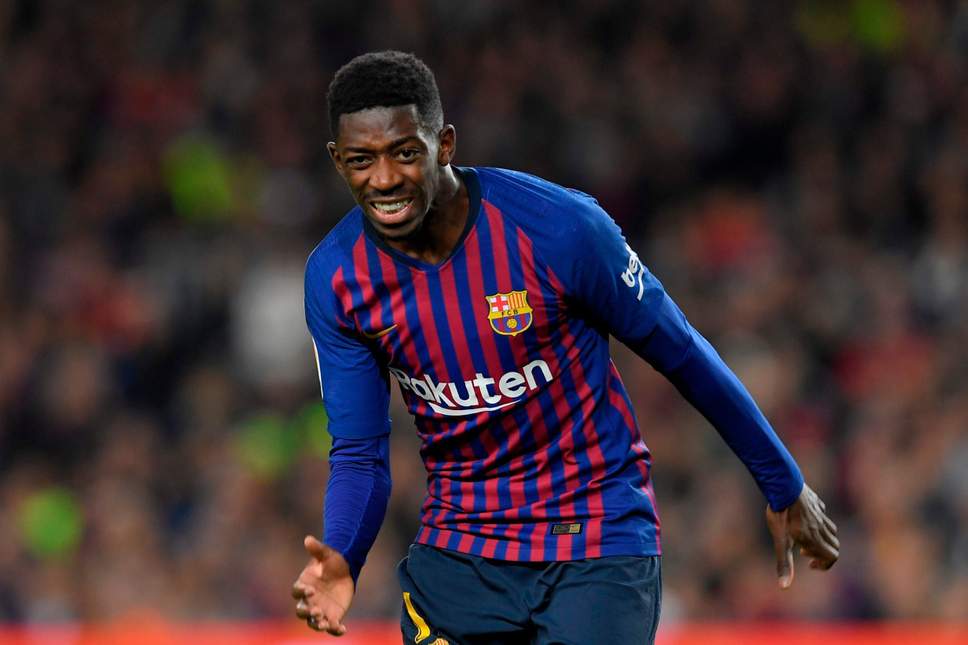
Many of our top players, who could change the outcome of the game, came from difficult backgrounds, which made them hungry for advancement (in life) and success. They have a special intrinsic motivation. As example there was a kid from Madeira called Cristiano Ronaldo. He lived in gym next to the youth academy of Sporting Lissabon with others. I heard stories.
DZ: Please go on
SM: After about three month the janitor (of this gym) went to the manager: ‘There’s this small kid, he shoots the ball against the gym wall until midnight, to try and receive it back. What should I do?’ They told him to do nothing. You know, exceptional athletes like Roger Federer or Michael Schumacher show, that things like talent aren’t genetic.
DZ: But?
SM: It’s lot of hours of training, which makes the difference. It could be playing on the streets or the reccy (football ground). Kids in the favelas in brazil played about 10.000 hours of football at the age of 12. A kid in germany won’t have as many.
DZ: You were born in Dortmund. Was Dortmund your natural choice?
SM: I worked in the Bundesliga before I went to Dortmund as chief analyst at a neutral match- and opposition analysis company. I went in self-employment in 2005. worked for Fortuna Düsseldorf and provided analytical pictures to BVB’s second team. The first time I spoke to (BVBs) manager Michael Zorc was in October 2006. I told him I wanted to be employed by a club, win and lose with it. These emotions were missing (in my self-employment).
DZ: Did they sign you immediately?
SM: I had 48 hours, to create a DVD with analysis of the last game and think about a possible team meeting. I had to present this to the co-coach. After that, they hired me. This was in October 2006. Michael Zorc wanted to modernize the scouting and analysis department of the BVB, trusted me and gave me the job. I established Databasesystems, video archives and technical scouting with tactic cameras.
DZ: You were the handyman?
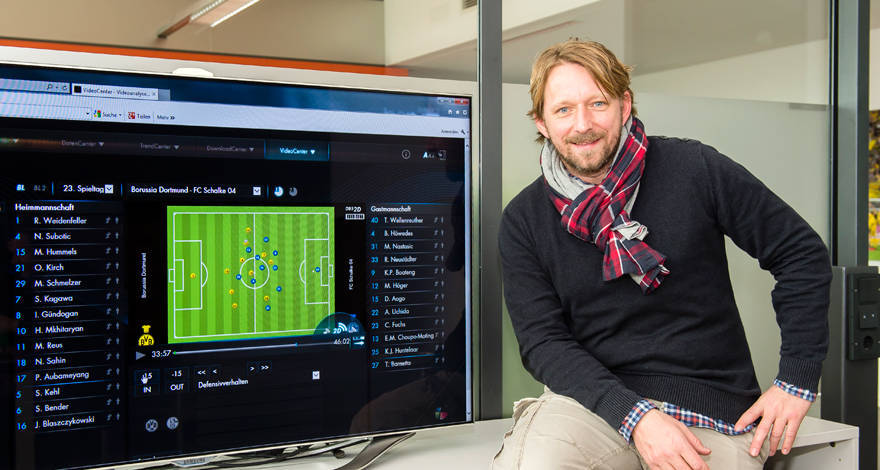
SM: Soon after I became chief scout and chief analyst in one person and with the arrival of Jürgen Klopp, one of my most important mentors, I did the analysis in the halftime for the squad as well. Today there are experts for this part of the game.
DZ: Is someone who can analyze teams tactically, also good at analyzing a single player?
SM: In the beginning I didn’t knew, if I could foresee how a player would turn out to be. I looked at how others worked to improve myself. My knowledge in match analytics helped me immensely to settle in at Arsenal. While we were looking for a successor for Arsene Wenger, we did hours long interviews with the possible coaches. It was me who did the football related questions/discussions. I watched five to six games of each possible coach, to try and get into their mindset: Which system are they playing? That’s how I could discuss with them on their level.
DZ: So you’re not only responsible for talent scouting at Arsenal?
SM: Right. I was part of the team to choose Unai Emery as the next coach. And ‘Head of Recriutment’ means I won’t only find targets but also get them to sign for the club. Even back in Dortmund there was no clear cut (between the roles). For the transfers from Dan-Axel Zagadou, who we signed from PSG or Jadon Sancho from Manchester City, I did the talks with the agents, the players and their parents. Dan-Axels father told me I had to watch over his son for him from now on.
DZ: In which phase of the transfer does the head coach has his saying?
SM: Most of the time it’s only at the end. You can’t send your coach abroad five times. Sometimes you have to do six to ten weeks of analysis about a player, before everybody else goes to watch him play – head of football, coach and maybe even the club manager. And then the player has a bad game! Or he starts to argue with his teammates or the referee. On these last impressions transfers imploded.
DZ: And then?
SM: You have to fight for it or start with the next player. That’s the job.
DZ: Do you travel a lot?
SM: It’s important to see games in person, but I’m not a fan of watching 250 games live per season. Traveling is time consuming. Instead of traveling to a game and stay there for a night, I could cover about three to four games in the office on video and roughly analyze five to six player. I prefer to systematical analyze the market of a country. This means I look at the league as a whole and use the complete package of databases and videos.
DZ: How does this look like?
SM: My team and me look at two to three complete match days in a specific league, for example in Sweden. We create a portfolio with interesting names in it. Then we look at the Data and work on a detailed video. After that we travel there and watch games in person. In two to three weeks we have completed the whole league and have a list of players were continuing to watch.
DZ: Is there data which misleads?
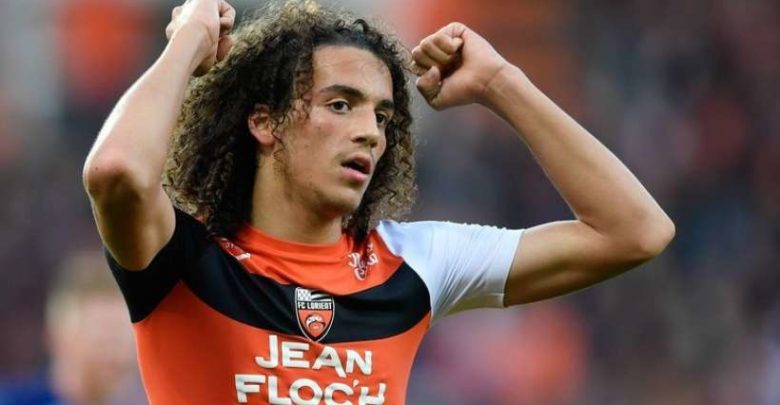
SM: I have to know how to interpret the data. Julian Weigls stats were pretty mediocre while playing at 1860 Munich, even with the ball. But the reason for this was his role as box to box player, with long balls floating over him. Often younger players haven’t had the time to learn the tactical understanding of the game. Our thoughts were: If we put Weigl in the defensive midfield with better runners around him, he would be a complete different player. He could distribute the ball, wait and balance the whole game. It was the same with Matteo Guendouzi.
DZ: A young midfielder you singed from the second french division for Arsenal.
SM: I saw him at FC Lorient, when the club still was in the first division. I like the club, they always produce interesting players. Guendouzi stud out with his long hair and his personality. But I also concentrated on his weaknesses. Are they trainable? Matteo ran unnecessarily across the whole pitch, but I was sure: It’s only a matter of training and time, before he learns when to run. It was an important transfer for us, because we wanted to show the world: We’re still the old Arsenal, which gives opportunities to younger player.
DZ: Do you use algorithm to sort out players?
SM: I can find names like that. /*again hard to translate*/ For example, if I’m looking for an ball-playing defender, I can use the computer to find the world best players easily- with system which rates their packing-model, a model which evaluate their passes and dribblings with players overplayed. A few years ago I founded Matchmetrics with friends, which is a platform for this kind of analytic. We rate offensive plays by how much goal thread they generate. And defensive plays on how much they reduce the opponents thread.
DZ: And in the end the software tells you the ideal player?
SM: Ideally it creates a list of ten to twenty names. Some of them will be to old, have a to long contract at their club or aren’t available. The rest of them will be analyst systematically. But data doesn’t show everything. You can’t just read them.
DZ: An example?
SM: If you take running stats. Some player run 12.5 km per game, but won’t run enough to get into duels with the opposition. Some run 12.5 km because they have to. Because they didn’t think quick enough and now have to catch the opposition. Other players only ran for 11km but did everything right: he closed gaps soon enough and wasn’t overplayed.
DZ: Does your work differ in the Premiere League (from the Bundesliga)?
SM: I learned a lot. The English league is the league everybody wants to join. Everything is even more political, everyone has connections to the media, which they use to create pressure for transfers. It’s interesting for me to prove myself here. Dortmund was probably the same size (as a club), but it the competition is way bigger.
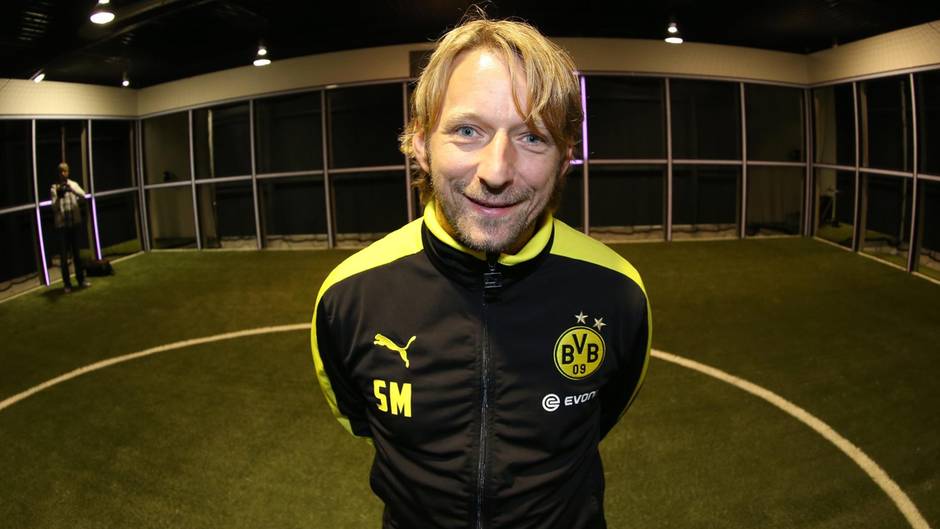
DZ: Why is that?
SM: If it’s leaked that we want to sign a player, at least two different clubs try to drive up the prices. In the PL there are at least three “Bayern Munichs”: The Manchester clubs and Chelsea. And there are three “Dortmunds”: Liverpool, Shit and Arsenal. Everyone else is comparable with RB Leipzip and Borussia Mönchengladbach size- and powerwise. It’s a different contest.
DZ: Without the argument with coach Thomas Tuchel you wouldn’t be in England, correct?
SM: There were a lot of positive reasons on why to choose a different path, but not a single bad one on why to leave Dortmund. The story with Thomas Tuchel was only important to start thinking about the change. There were proposals from England and Germany even before that. It’s paradox, that my popularity rose with this event.
DZ: You wanted to sign Oliver Torres from Atletico Madrid, Tuchel didn’t – was that what it was all
about?
SM: We all choose to sign him. Everything was done, even Oliver fought for this transfer. And then the coach didn’t wanted him anymore. But for me the transfer was at the point of no return. If I persuaded a player to sign, I can’t drop him afterwards. It’s about authenticity. But it didn’t escalate at all. I was just told I shouldn’t be around the coaching staff and the team anymore. There was no real argument.
MUST READ:
-
Potential consequences: If Arsenal sign Hannes Wolf
-
ISCO could help bridge the gap between Arsenal and Manchester City
-
Why do Arsenal need Adrien Rabiot?
-
Who would you rather have: Aaron Ramsey, Juan Mata or Cesc Fabregas?

